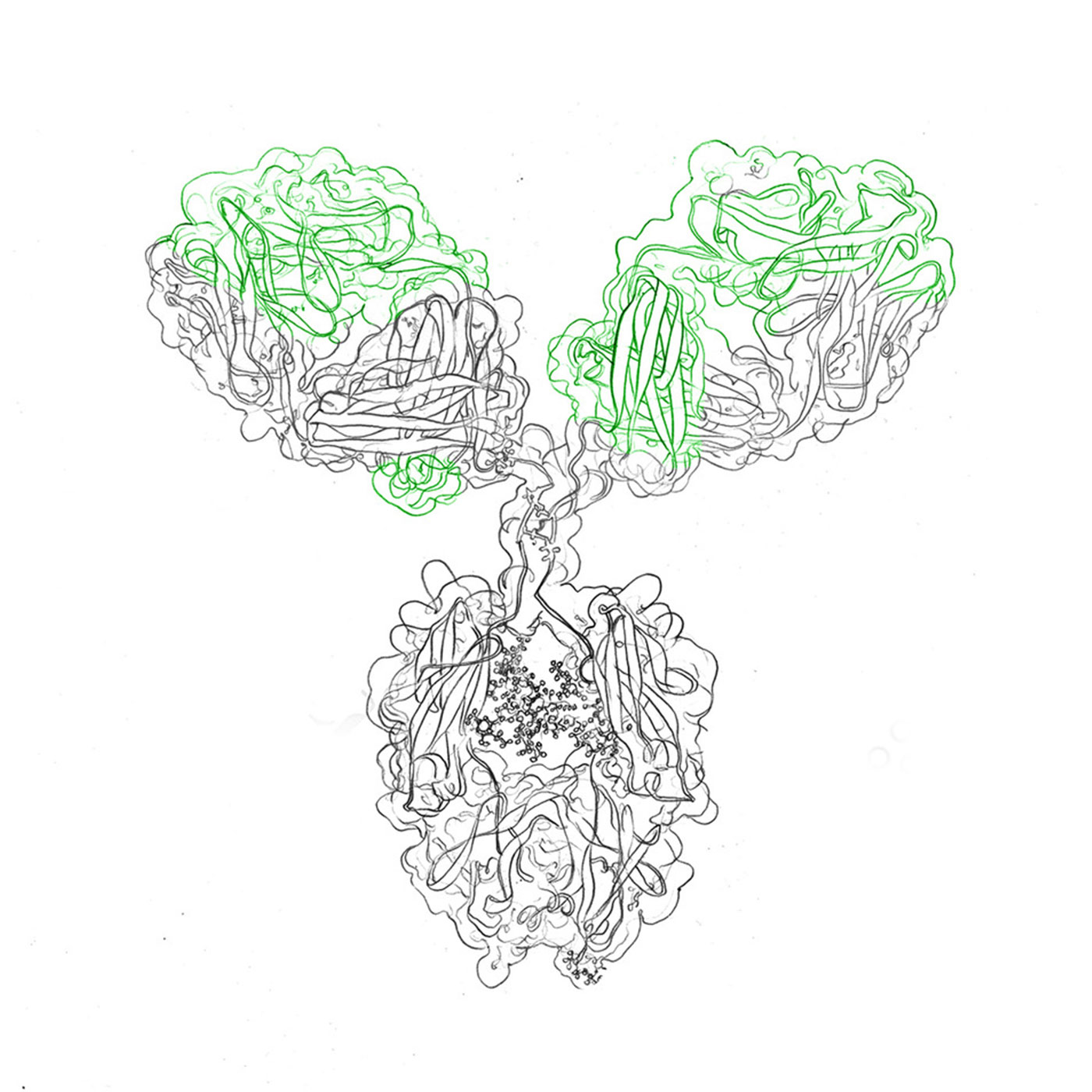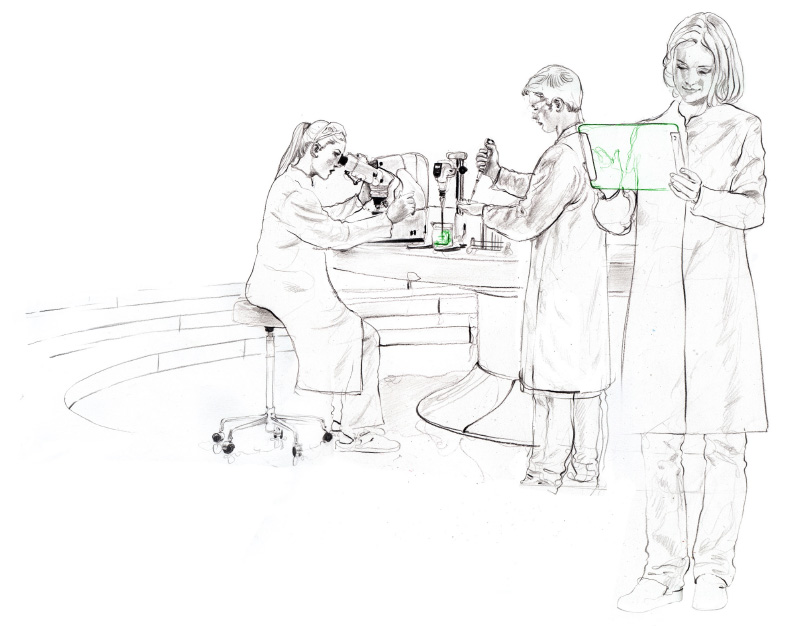Recombinant monoclonal antibody production
We are a leading service provider for recombinant antibody production. Get in contact!
In the field of immunology and medical research, antibodies play a pivotal role in understanding and combating diseases. While antibodies are typically associated with the natural immune response within living organisms, in vivo antibody production can also be induced via laboratory techniques.
In this blog post, we will explore in vivo antibodies from various perspectives. We can gain insights into their applications, advantages, and their comparison to monoclonal and recombinant antibodies produced in vitro.
The term “in vivo antibodies” encompasses two distinct meanings, depending on the perspective.
Antibodies produced in vivo are vital components of the immune response in living organisms. They play a crucial role in recognizing and neutralizing antigens to protect against infections and diseases.
Subscribe to our Newsletter
Get all the latest updates, and learn about our advancements in antibody production.
Subscribe now
In vivo antibody production involves a complex process where specialized immune cells, such as B cells, recognize and bind to antigens, triggering the production of specific antibodies. Murine models, including mice, are often used to study immune responses and generate antibodies with desired specificities.
These in vivo-produced antibodies, known as polyclonal antibodies, exhibit high specificity and recognize distinct epitopes on antigens. They are essential tools in immunology, diagnostics, and therapeutics, aiding in the understanding of immune responses and facilitating disease detection and treatment.
The in vivo antibody production process is used in laboratories to produce antibodies in animals. Here’s an overview of the individual steps involved:
In vitro antibody production is a method used in laboratories to generate antibodies outside a living organism, such as mouse models. This approach involves utilizing specific cell lines, such as hybridomas, or recombinant cell lines (such as HEK cells or CHO cells), to produce antibodies through cell culture techniques.
The process of in vitro antibody production offers several advantages. It enables the production of large quantities of recombinant proteins in a controlled environment, ensuring consistent quality and customizable properties. This method is particularly valuable for applications in diagnostics, research, and therapeutic interventions.
By employing in vitro antibody production, researchers have the flexibility to optimize antibody characteristics, such as specificity, affinity, and isotype controls. This versatility allows for tailored antibody development to meet diverse experimental and clinical needs.
We are a leading service provider for recombinant antibody production. Get in contact!

In vivo antibodies are designed for use within living organisms, with applications in medical research and therapy. They target specific molecules or antigens, modulating immune responses and facilitating therapeutic interventions. These antibodies are valuable in immunotherapy and diagnostic assays, contributing to advancements in healthcare.
Antibodies play a crucial role in vivo by exerting diverse functions within living organisms. These remarkable molecules function through a range of mechanisms to provide immune protection and therapeutic effects.
When antibodies encounter their target antigen in vivo, they can initiate various outcomes. Antibodies can neutralize pathogens by binding to specific viral or bacterial components, preventing their entry into host cells. They can also act as inhibitors, blocking the activity of enzymes or signaling molecules involved in disease processes.
In addition to direct effects, antibodies can engage effector functions. These functions include activating immune cells such as macrophages or natural killer cells, leading to enhanced pathogen clearance or tumor cell destruction. Antibodies can also recruit complement proteins, triggering a cascade of immune responses that lead to pathogen elimination (ADCC) or enhanced immune surveillance.
Moreover, antibodies in vivo can facilitate the delivery of therapeutic agents, being an integral part of antibody-drug conjugates. By attaching to specific receptors on target cells, antibodies can serve as carriers to deliver drugs, toxins, or therapeutic peptides precisely to the desired site.
These in vivo antibody functions are mediated through the interaction between the antibody’s variable regions and the target antigen. The constant regions of antibodies, specifically the immunoglobulin Fc region, play a pivotal role in engaging effector functions and modulating antibody activity.
In vivo antibodies have diverse applications in medical research and therapy. They are used for:
In vivo monoclonal antibodies (mAbs) are extensively employed in various research and therapeutic applications. Here are some frequently used in vivo mAb products:

In vivo antibodies have distinct requirements compared to in vitro antibodies. These include:
evitria is a specialized service provider for recombinant antibodies for in vivo and in vitro applications. For recombinant antibody production, we rely on Chinese Hamster Ovary cells (CHO cells), allowing us to express recombinant proteins in an outstanding quality and with optimal reactivity.
CHO cell antibody production allows us to provide recombinant antibodies that correspond with the manifold necessities for in vivo applications, such as low levels of endotoxicity. Furthermore, no live animals are involved in the production process, since CHO cells have been harvested from one individual decades ago and cultured in vitro since then. This is how we can provide partners around the world with high quality antibodies that address both ethical and cGMP-related considerations.
Yes, in vivo antibodies can be used in mouse models. However, it is crucial to consider potential reactivity against mouse tissues and select appropriate anti-mouse secondary antibodies if needed.
ELISA (Enzyme-Linked Immunosorbent Assay) is commonly used in antibody validation. It helps determine antibody specificity, affinity, and concentration, ensuring their suitability for research and diagnostic applications.
In vivo antibodies can modulate immune responses, including the activation, depletion or suppression of T cells, depending on the antibody’s target and intended therapeutic effects.
Carrier proteins and preservatives are added to antibody formulations to enhance stability, prevent aggregation, and extend shelf life. Bovine serum albumin (BSA) and phosphate-buffered saline (PBS) are commonly used as carrier proteins and buffer solutions, respectively.